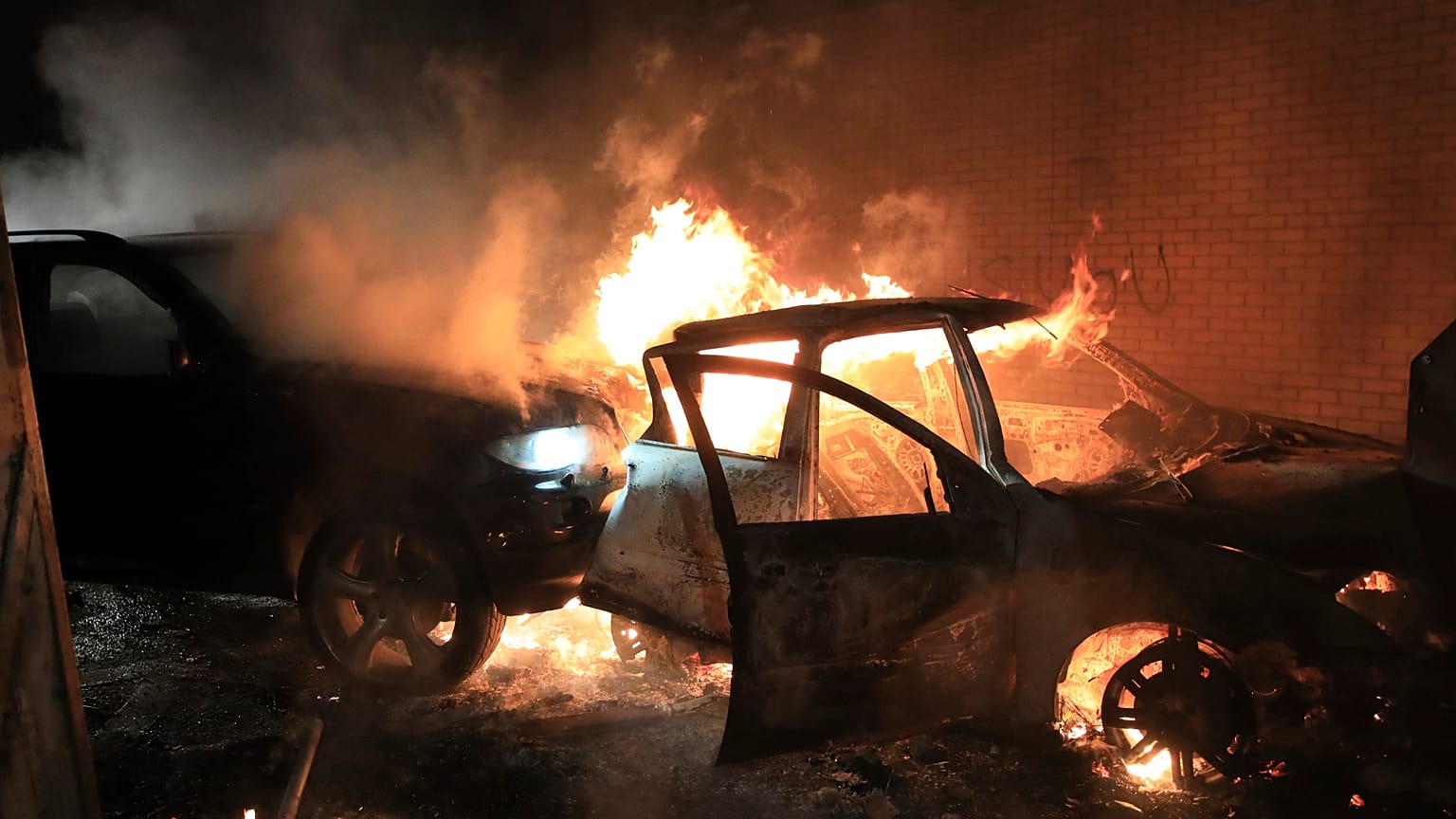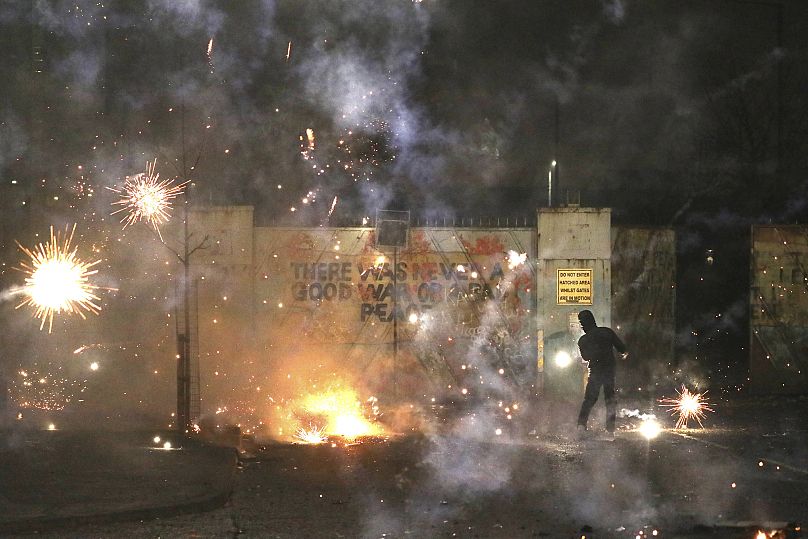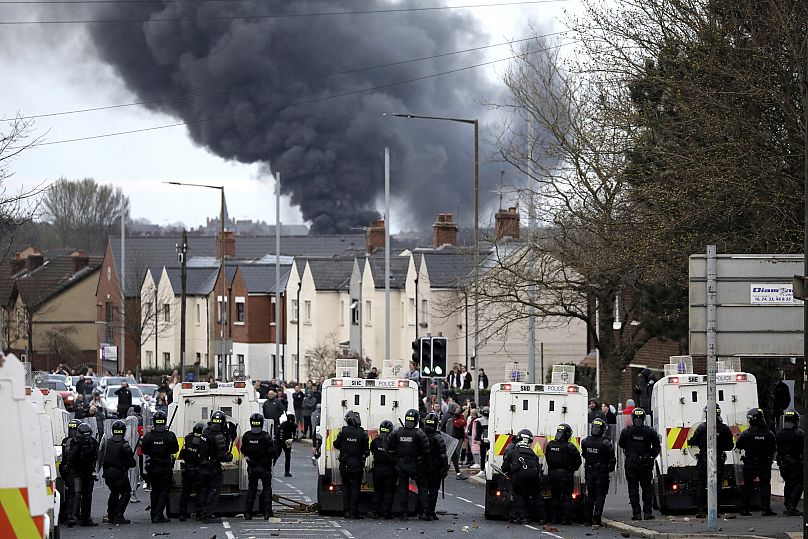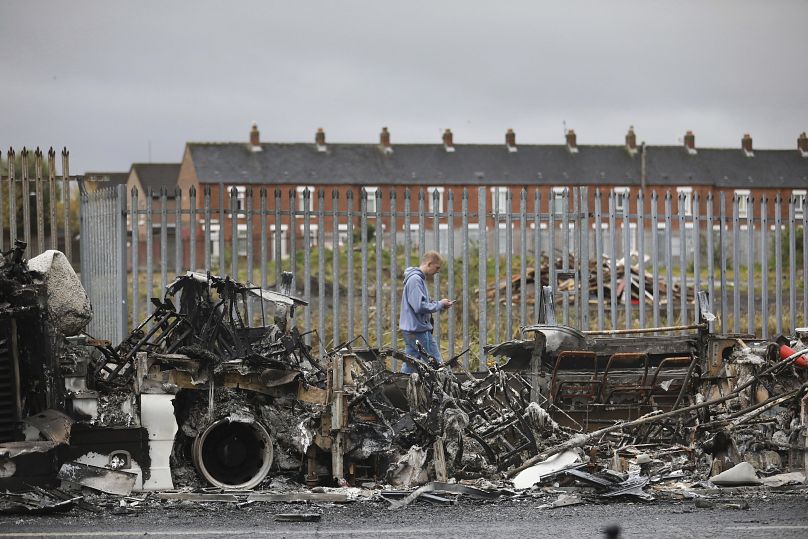The capital of Northern Ireland has been the scene of a week of rioting amid rising tensions over the fallout from Brexit.
A seventh straight night of violence rocked Northern Ireland’s capital on Thursday, as riots continued amid tensions over Brexit and coronavirus measures.
British prime minister Boris Johnson and Irish Taoiseach Micheál Martin joined the appeals for calm, following a week of violence in west Belfast in an area connecting the loyalist community of Shankhill Road with the nationalist Springfield Road.
Police deployed dogs and water cannons on Thursday night to disperse the crowds. The previous evening, a bus had been hijacked and set ablaze, police were attacked by stones and bottles, and a journalist was assaulted.
Boris Johnson said he was “deeply concerned” about the scenes of violence, and that “the way to resolve differences is through dialogue, not violence or criminality.”
First Minister Arlene Foster condemned the rioters and branded their behaviour an embarrassment to Northern Ireland.
"This is not protest. This is vandalism and attempted murder. These actions do not represent unionism or loyalism," she said.
In a statement, Northern Ireland's police federation condemned "shocking scenes which could set our society back years" and "violence on both sides of the interface at Lanark Way."
"Calm is needed on both sides of the gates before we are looking at a tragedy. These are scenes we hoped had been confined to history."
A total of 41 police officers have been injured during six nights of violence on the streets of several cities in Northern Ireland, including Londonderry and Belfast.
It comes at a time of rising tensions between Loyalist and Nationalist political factions in Northern Ireland and amid a COVID-19 lockdown.
Northern Ireland's Stormont Assembly has been recalled for an emergency debate on the violence.
What is behind the unrest?
Euronews spoke with Sajj Karim, international lawyer and former UK Conservative Party MEP, who said there had been warnings about backlash to a "hard Brexit".
“It was predictable, it was explained, but it was dealt with in a very brash manner by those who were arguing in favour of Brexit simply by labelling it ‘Project Fear’,” he said.
“Unfortunately we were dealing with a very finely balanced peace agreement, and whilst those proponents of Brexit may have been able to drive a bulldozer through a brick wall and convince the English electorate that’s how you deliver Brexit, I’m afraid you cannot treat a finely balanced peace agreement in the same way, without consequences.”
Since the Good Friday Agreement, there has been "peace on the surface", said Fiona McMahon, a 56-year-old resident.
"It's deep-rooted, it's not just because of Brexit," she said, adding that British Prime Minister Boris Johnson in London "doesn't care about this place".
Brexit has upset the delicate balance in the province, requiring the introduction of customs controls between the UK and the EU.
Intended to prevent the return of a physical border between the British province and the EU member Republic of Ireland, the checks are held at Northern Irish ports.
Despite a grace period to allow businesses to adapt, these new arrangements are disrupting supplies and are denounced by unionists as a border between Northern Ireland and Britain, and a betrayal by London.


















